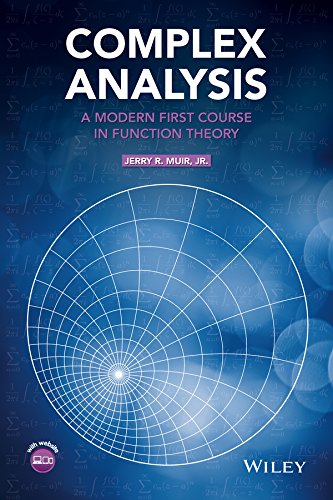| Ian Stewart, "Why Beauty Is Truth: The History of Symmetry", 2007 | |
 | “A complex number is just a pair of real numbers, manipulated according to a short list of simple rules. Since a pair of real numbers is surely just as ‘real’ as a single real number, real and complex numbers are equally closely related to reality, and ‘imaginary’ is misleading.” |
| “The complex numbers extend the real numbers by throwing in a new kind of number, the square root of minus one. But the price we pay for being able to take square roots of negative numbers is the loss of order. The complex numbers are a complete system but are spread out across a plane rather than aligned in a single orderly sequence.” | |
| David Mumford, Caroline Series & David Wright, "Indra’s Pearls: The Vision of Felix Klein", 2002 | |
 | “Complex numbers are really not as complex as you might expect from their name, particularly if we think of them in terms of the underlying two dimensional geometry which they describe. Perhaps it would have been better to call them 'nature's numbers'. Behind complex numbers is a wonderful synthesis between two dimensional geometry and an elegant arithmetic in which every polynomial equation has a solution.” |
| “Ordinary numbers have immediate connection to the world around us; they are used to count and measure every sort of thing. Adding, subtracting, multiplying and dividing all have simple interpretations in terms of the objects being counted and measured. When we pass to complex numbers, though, the arithmetic takes on a life of its own. Since -1 has no square root, we decided to create a new number game which supplies the missing piece. By adding in just this one new element √-1. we created a whole new world in which everything arithmetical, miraculously, works out just fine.”
| |
| Paul J Nahin, "An Imaginary Tale: The History of √-1", 1998 | |
 | “The discovery of complex numbers was the last in a sequence of discoveries that gradually filled in the set of all numbers, starting with the positive integers (finger counting) and then expanding to include the positive rationals and irrational reals, negatives, and then finally the complex.” |
| “When we try to take the square root of -1 (a real number), for example, we suddenly leave the real numbers, and so the reals are not complete with respect to the square root operation. We don’t have to be concerned that something like that will happen with the complex numbers, however, and we won’t have to invent even more exotic numbers (the ‘really complex’!) Complex numbers are everything there is in the two-dimensional plane.” | |
| Jerry R Muir Jr., “Complex Analysis: A Modern First Course in Function Theory”, 2015 | |
 | “Complex analysis should never be underestimated as simply being calculus with complex numbers in place of real numbers and is distinguished from being so at every possible opportunity.” |
| “The upgrade from the real numbers to the complex numbers has both algebraic and analytic motivation. The real numbers are not algebraically complete, meaning there are polynomial equations such as x^2 = −1 with no solutions. The incorporation of √-1 […] is a direct response to this.” | |
| Tobias Dantzig, “Number: The Language of Science”, 1930 | |
 | “[…] extensions beyond the complex number domain are possible only at the expense of the principle of permanence. The complex number domain is the last frontier of this principle. Beyond this either the commutativity of the operations or the rôle which zero plays in arithmetic must be sacrificed.” |
| “And so it was that the complex number, which had its origin in a symbol for a fiction, ended by becoming an indispensable tool for the formulation of mathematical ideas, a powerful instrument for the solution of intricate problems, a means for tracing kinships between remote mathematical disciplines.”
Previous Post <<||>> Next Post See also: More Quotes on Complex Numbers III More Quotes on Complex Numbers II More Quotes on Complex Numbers I Complex Numbers | |
Quotes and Resources Related to Mathematics, (Mathematical) Sciences and Mathematicians
03 October 2018
5 Books 10 Quotes V: On Complex Numbers IV
Subscribe to:
Post Comments (Atom)
On Literature: On Surfaces (From Fiction to Science-Fiction)
"In Science, all tends to stir, to change, to form fresh surfaces. All denies, destroys, creates, replaces all. What was ground yesterd...
read about Ludwig Boltzmann about his famous in art and about his childhood life he also did alot quotes in his books about mathematics,he did study about art when he went to college at University of Vienna he became a president at University of Graz In 1887, he was a talented artist he studied about physics in 1977,
ReplyDeleteLudwig had a special role of art thats why i am pubishing about his story about his art and his childhood life he is alos a pianist to look him up online and ready about about his story life where he really his form with his Famliy and his work his favorite quote his the Begining is the imortant part of the work he was a famous composer. is Anton Bruckner
ReplyDelete